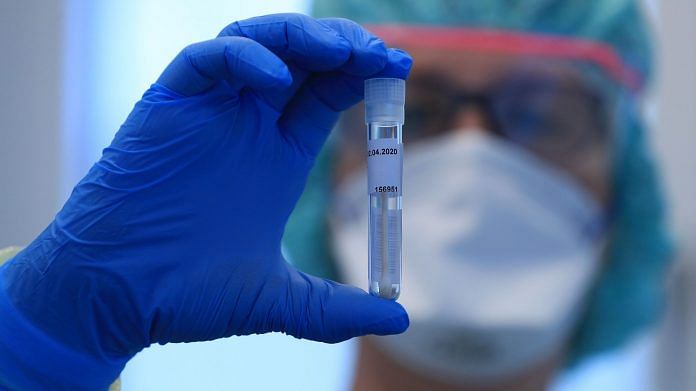As the coronavirus crisis grinds on, many companies and university research labs are trying to develop vaccines. Let’s hope one of them achieves a breakthrough — the sooner the better. But as my Bloomberg Opinion colleague Max Nisen pointed out recently, the challenge doesn’t stop there.
Once a vaccine is found, you have to manufacture it and deliver it to the population. The catch is, manufacturers may not have the means or motivation to invest in mass production. That’s why Microsoft co-founder Bill Gates is devoting money to help build factories to produce vaccines, even before one is developed.
Of course, nobody is concerned that there won’t be demand for coronavirus vaccines; there’s a global pandemic going on, after all. But even so, the vaccine market won’t be as deep as we’d like: many who will need vaccines won’t have the resources to get them. For this reason, manufacturers may lack the incentive to make vaccines for vast swaths of the population.
This is a common problem when vaccines are offered in the developing world, where the value of inoculating the population is high, but many people can’t pay. And there’s a solution: instituting what’s called an advance market commitment, where governments or private donors pledge upfront subsidies to support distribution once a vaccine is developed. By ensuring robust demand, advance market commitments encourage producers to invest in infrastructure to manufacture and distribute the vaccine widely — and quickly. That’s what we need now.
But economic theory tells us that not all advance market commitments are created equal. In a recent paper, economists Michael Kremer, Jonathan Levin and Christopher M. Snyder have shown that different subsidy schemes lead to starkly different incentives.
Perhaps the simplest way to structure a vaccine subsidy would be for either the government or private donors to just set aside funds that can be used to underwrite vaccine delivery. Although that sounds like it should help, Kremer, Levin, and Snyder show that such a mechanism in fact may not lead companies to invest in production capacity above what they would have built otherwise.
Why’s that? Assuming the subsidy money is stored in a bank, it accrues interest — exactly as it would in the manufacturer’s own account. This makes the manufacturer more or less indifferent about how quickly it draws down the fund — which in turn means it doesn’t have much reason to speed up vaccine production.
That changes, of course, if there’s a lot of competition, because then manufacturers have to race to capture as large a chunk of the fund as possible. But we can’t count on competition when the first Covid-19 vaccines hit the market because most likely one maker will get there ahead of the others.
So what should we do? Kremer, Levin, and Snyder argue that it’s more effective to use advance market commitments built around a supply target. Under such a mechanism, funds from the subsidy would be prorated based on how close manufacturers get to a set production goal.
So long as the goal is set above the level that manufacturers would have produced otherwise, this sort of advance market commitment pushes them to develop additional capacity so they can capture more of the subsidy. That worked in a pilot Kremer, Levin, and Snyder advised that has supported immunizing more than 150 million children against pneumococcus since 2009.
You might be able to do even better if the government were to set capacity directly. But given the present administration’s unwillingness to macro-manage our crisis response that seems unlikely to happen. An alternative might be to have private philanthropists funnel capital into expanding production capacity, as Gates is doing.
As you might expect, the optimal advance market commitment design also depends on how close companies are to being ready to bring vaccines to market. In particular, if research and development is in progress but lagging, then subsidies would need to be larger.
More broadly, vaccine makers need to be encouraged to develop coronavirus vaccines and get them widely distributed as soon as possible. Committing upfront to make doing so worth their while might kick the whole process into a higher gear. – Bloomberg
Also read: Coronavirus can’t be eradicated, could keep returning like flu, Chinese scientists say



